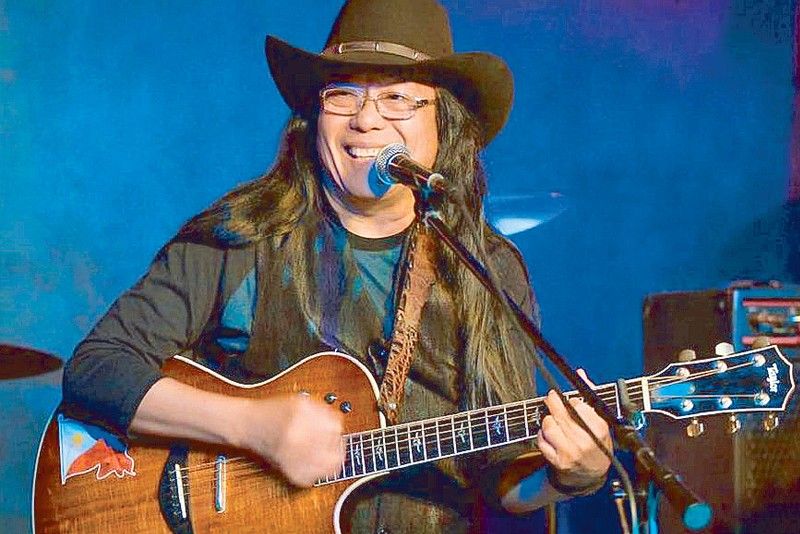He didn’t need flashy lights or million-dollar productions. All it took was a guitar, a voice laced with pain, and a story that pierced through generations. Freddie Aguilar, the man behind the hauntingly beautiful song “Anak”, became more than just a singer. He became the voice of a nation grappling with identity, pain, and hope.
But how did a boy from Isabela rise to become one of the most powerful storytellers in Philippine music? This is the journey of Freddie Aguilar — raw, rebellious, and revolutionary.
The Song That Shook the Nation
It began in the late 1970s. Freddie Aguilar, then in his 20s, was a struggling musician with nothing but a borrowed guitar and a head full of regrets. Having left home and disappointed his father, he wandered through dark alleys of self-discovery. It was during one of these quiet, reflective nights that he wrote “Anak” — a song so personal, so heartbreakingly honest, that it transcended languages, borders, and even generations.
“When I wrote Anak, I wasn’t trying to be famous,” Freddie once said in an interview. “I was just trying to say sorry to my father.”
But what began as an apology became an anthem. With lines like “Nang isilang ka sa mundong ito, laking tuwa ng magulang mo”, millions of listeners felt their hearts crack open. Anak was their story too — of disobedience, regret, and the aching need for forgiveness.
Global Fame, Local Soul
Anak exploded on the charts — not just in the Philippines, but in over 50 countries. Translated into multiple languages including Japanese, German, and French, it sold over 30 million copies, making it one of the best-selling songs of all time by a Filipino artist.
Yet despite international acclaim, Freddie stayed rooted in his culture. “I am not just an artist. I am a Filipino artist,” he would often declare. He wore the barong proudly, sang in Tagalog unapologetically, and told stories no foreign label could polish into pop. He remained fiercely nationalistic — a man who used fame not for glamor, but for cultural preservation.
A Rebel With a Cause
Freddie Aguilar was never one to shy away from controversy. When the Marcos dictatorship loomed, he didn’t stay quiet. His song “Bayan Ko”, originally written during the American colonization, was revived as a protest anthem. He sang it during rallies, igniting the spirits of those who sought democracy. While others feared censorship, Freddie chose courage over comfort.
It wasn’t just political rebellion. Freddie challenged the norms of the music industry. He refused to conform to Western influences. Instead, he brought back the soul of the Filipino: the harana, the kundiman, the folk narratives of provincial life. And people listened. They didn’t just hear his songs; they felt them.
The Controversial Chapters
Freddie’s life off-stage was just as complex. He made headlines for relationships that sparked public debate, including one with a woman much younger than him. While many criticized, others pointed out the media’s tendency to judge artists more harshly than politicians.
Still, Freddie never asked to be seen as perfect. “I’m not a saint,” he once said. “I’m just a man who sings the truth.”
His flaws made him more human, and in many ways, even more relatable. Because like the characters in his songs, he too struggled, stumbled, and stood back up.
Legacy Beyond the Music
Freddie Aguilar’s contributions are more than just melodic. He sparked a national consciousness. He made young Filipinos question their values, made parents cry silently in living rooms, and reminded an entire country of the importance of roots.
He inspired a generation of musicians who looked beyond fame and focused on purpose. Artists like Joey Ayala, Gary Granada, and Noel Cabangon credit him for opening doors not just in folk music, but in national identity.
In 2014, Aguilar was appointed as the chairman of the National Commission for Culture and the Arts (NCCA) under the Duterte administration — a move that both shocked and excited many. While critics questioned his political associations, fans believed it was time someone from the arts represented the arts.

Still Singing, Still Fighting
Today, even in his 70s, Freddie Aguilar continues to perform. His voice may have aged, but it carries even more soul now. Whether he sings “Magdalena”, “Estudyante Blues”, or a reprise of “Anak”, he brings with him not just nostalgia, but a truth that still resonates.
You won’t see Freddie chasing TikTok trends or reinventing himself for algorithms. That’s not his style. He remains true — an artist who carved his own path in a world that often demands conformity.
The Man Behind the Melody
Behind the stage persona is a man deeply in touch with his roots. Freddie Aguilar remains connected to the struggles of the poor, the cries of the youth, and the frustrations of the working class. His songs are not products of imagination — they are reflections of reality.
“He didn’t just sing about the Filipino story — he lived it,” said a fan who grew up with his music. And that’s perhaps why Freddie endures — because in every Filipino household, there’s an Anak, a Magdalena, a Bayan Ko waiting to be sung.
A Timeless Voice
Freddie Aguilar may have written his masterpiece decades ago, but his voice remains timeless. In a country still searching for unity and healing, his music remains a balm — honest, raw, and unfiltered.
He showed us that one man, one song, and one guitar can move a nation.
And for that, Freddie Aguilar is — and always will be — more than a singer.
He is a symbol.
He is a storyteller.
He is the soul of the Filipino.
News
Behind the Drama: What Really Sparked the Xian Gaza, Ivana Alawi, and Benitez Scandal?
It started with a post. Then another. Before anyone could catch their breath, the names Xian Gaza, Ivana Alawi, and…
How Not to Cancel a Wedding: Lessons from Bea and Dominic’s Split That Shocked Fans
The sudden split between Bea Alonzo and Dominic Roque sent shockwaves through their fans and the entertainment world alike. Once…
Vlogger Boy Tapang Surrenders Over VAWC Case: What Really Happened?
Just a few months ago, Boy Tapang’s name was synonymous with thrill-seeking adventures, eccentric challenges, and raw, unfiltered energy that…
Missing No More: Karen Lopez and Boyfriend Resurface, Reveal Real Reason Behind Vanishing
She was once a rising face in Vivamax films, admired for her daring roles and raw talent. But in a…
‘Spark Joy’ Creator Marie Kondo Talks Chaos, Motherhood, and New Perspective
Marie Kondo, the global icon of decluttering, has built an empire teaching people how to live with less, find joy…
K Brosas Opens Up to Fans: Reflections on 25 Years of Career and Surprises
K Brosas, a beloved figure in the Philippine entertainment industry, has spent 25 years captivating audiences with her wit, humor,…
End of content
No more pages to load












